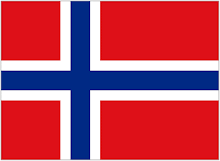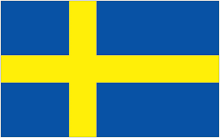It's been creeping closer for some time now, but now it has actually been laid out - well, in black and white.
Taxpayer funded quangos and public sector bureaucrats have united to launch a purge of English phrases which they consider racist. Also out is anything which smacks of 'gender bias'.
From The Times:
The vast majority of these phrases have absolutely nothing to do with race, racism or nationality.It could be construed as a black day for the English language — but not if you work in the public sector.
Dozens of quangos and taxpayer-funded organisations have ordered a purge of common words and phrases so as not to cause offence.
Among the everyday sayings that have been quietly dropped in a bid to stamp out racism and sexism are “whiter than white”, “gentleman’s agreement”, “black mark” and “right-hand man”.
The Northern Ireland Human Rights Commission has advised staff to replace the phrase “black day” with “miserable day”, according to documents released under freedom of information rules.
It points out that certain words carry with them a “hierarchical valuation of skin colour”. The commission even urges employees to be mindful of the term “ethnic minority” because it can imply “something smaller and less important”.
The National Gallery in London believes that the phrase “gentleman’s agreement” is potentially offensive to women and suggests that staff should replace it with “unwritten agreement” or “an agreement based on trust” instead. The term “right-hand man” is also considered taboo by the gallery, with “second in command” being deemed more suitable.
Many institutions have urged their workforce to be mindful of “gender bias” in language. The Learning and Skills Council wants staff to “perfect” their brief rather than “master” it, while the Newcastle University has singled out the phrase “master bedroom” as being problematic.
Advice issued by the South West Regional Development Agency states: “Terms such as ‘black sheep of the family’, ‘black looks’ and ‘black mark’ have no direct link to skin colour but potentially serve to reinforce a negative view of all things black. Equally, certain terms imply a negative image of ‘black’ by reinforcing the positive aspects of white.
“For example, in the context of being above suspicion, the phrase ‘whiter than white’ is often used. Purer than pure or cleaner than clean are alternatives which do not infer that anything other than white should be regarded with suspicion.”
The clampdown in the public sector has angered some of the country’s most popular writers.
Anthony Horowitz, author of the Alex Rider children’s spy books, said: “A great deal of our modern language is based on traditions which have now gone but it would be silly — and extremely inconvenient — to replace them all. A ‘white collar worker’, for example, probably doesn’t wear one. An ‘able seaman’, under new regulations, could well be neither. ‘Spanish practices’ can happen all over Europe. We know what these phrases mean and we can find out from where they were derived. Banning them is just unnecessary.”
They are part of the rich oral tradition of the various dialects spoken in this country, and of the English language as a whole.
Could this simply be another cynical attempt to break links with our past?
We get closer to the Ministry of Truth everyday.
I would encourage everyone to use these phrases as much as possible - the way people speak cannot be dictated by zealots.
As one of the contributors at The Times article has it:
My right-hand man (who is rather niggardly in speech) simply gave me a black look when I suggested we make a gentleman's agreement to not use terms offensive to minorities. Since he is a master of non-verbal communication, I took the hint and scuttled the matter. His judgement is whiter-than-white, as on reflection I noted that it will be a black day indeed when we are unable to use the English language as God intended. So I suppose we'll remain black sheep.
.jpg)

















































































No comments:
Post a Comment